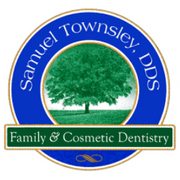
Saliva plays a major role in oral health by flushing away food particles and bacteria. It also contains enzymes that help break down food. If you cannot produce sufficient saliva to keep your mouth wet, you have dry mouth. Also known as xerostomia and cottonmouth, dry mouth is an oral health condition with many causes. And while everyone experiences symptoms occasionally, chronic dry mouth negatively impacts oral hygiene and health without treatment. Here are the basics and what you can do about it.
Dry Mouth Causes & Solutions
Causes
If you don’t drink enough water, dehydration results in a dry, sticky feeling in the mouth or head and muscle aches. Health problems that cause dehydration, such as diarrhea, fever, and vomiting, also result in temporary dry mouth. Tobacco use dries out and irritates the mouth as well.
 Numerous medications, including antihistamines, antidepressants, and decongestants, cause dry mouth symptoms, as do certain medical treatments. Cancer-related radiation therapy, for example, can damage the salivary glands.
Numerous medications, including antihistamines, antidepressants, and decongestants, cause dry mouth symptoms, as do certain medical treatments. Cancer-related radiation therapy, for example, can damage the salivary glands.
Other causes for this oral hygiene issue include diseases affecting the salivary glands—Parkinson’s disease, diabetes, Hodgkin's disease, and HIV/AIDS are examples. Nerve damage to the head or neck can result in dry mouth, as can hormonal changes related to menopause. These changes can sometimes affect the salivary glands.
Symptoms
In addition to a parched, sticky feeling in your mouth, you may experience throat dryness and irritation. Other signs include a raw, excessively red tongue, consistent feelings of thirst, and a burning sensation in the mouth. Symptoms may also include mouth sores and cracked lips, dry nasal passages, and hoarseness. Bad breath is another symptom because there is not enough saliva to remove foul-smelling bacteria.
Solutions
Treatment for dry mouth depends on the cause. In addition to increasing your water intake, you may need to switch medications and make diet changes. Fruits and vegetables contain high amounts of water to keep you hydrated. Lifestyle changes help as well, such as refraining from tobacco use and adding a humidifier to your bedroom. When on the go, breathing through your nose alleviates dry mouth problems.
Visit your dentist if your dry mouth persists, as you may need an oral rinse that encourages saliva production. Your oral hygiene expert will suggest seeing a specialist if your issue could be due to a larger health problem.
Don’t let dry mouth impact your dental and overall health. Schedule an appointment at South Baldwin Dental Associates, P.C. in Foley, AL. Dr. Samuel Townsley has cared for patients throughout South Baldwin County for 25 years and is a member of both the American Dental Association and the American Academy of General Dentistry. Call (251) 943-1521 today to make your appointment or learn about cosmetic and general dentistry services. Get more oral hygiene tips on Google+.
About the Business
Have a question? Ask the experts!
Send your question

